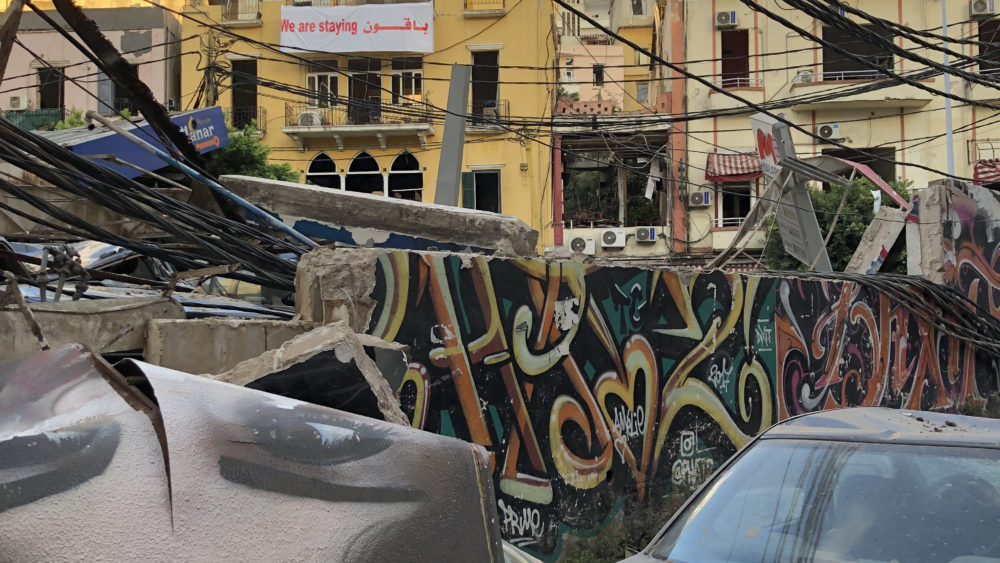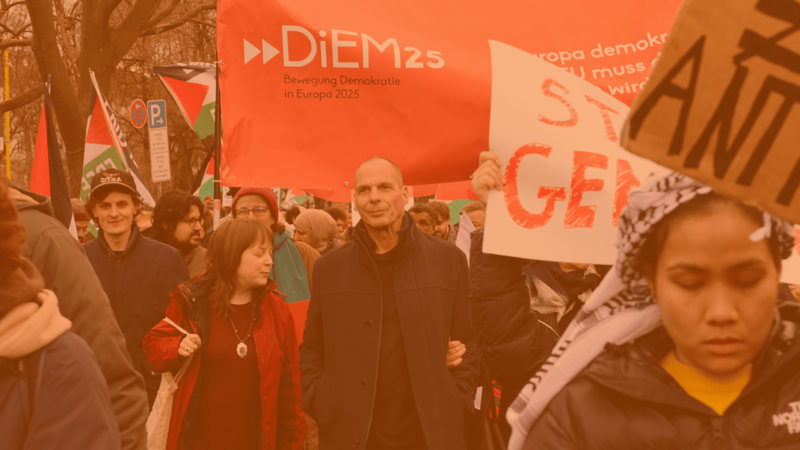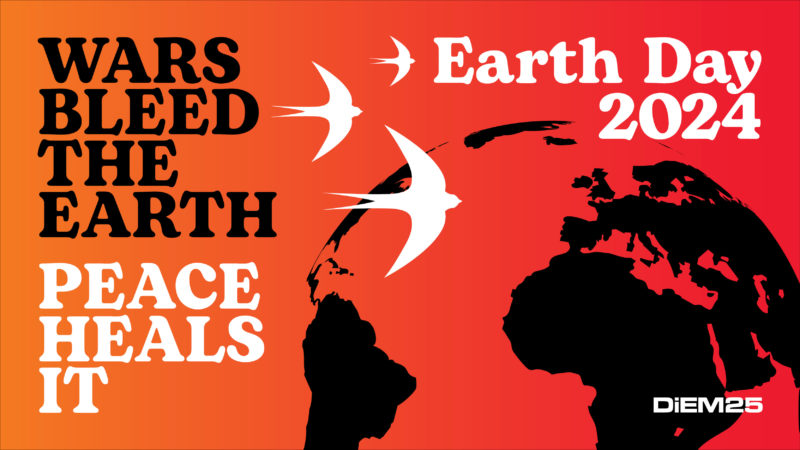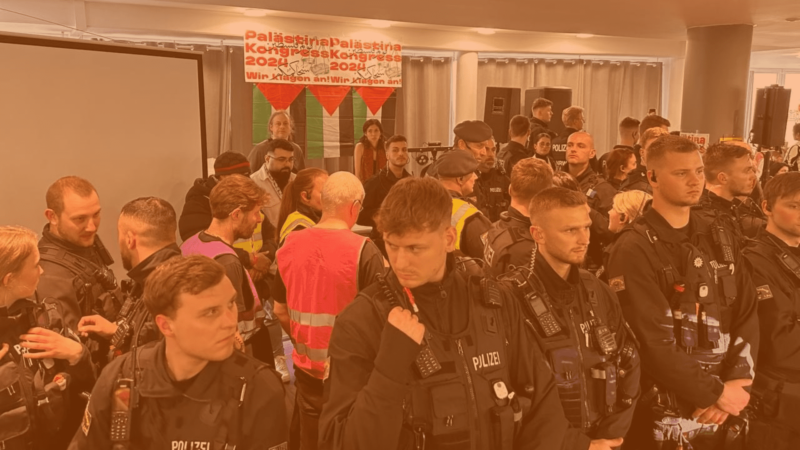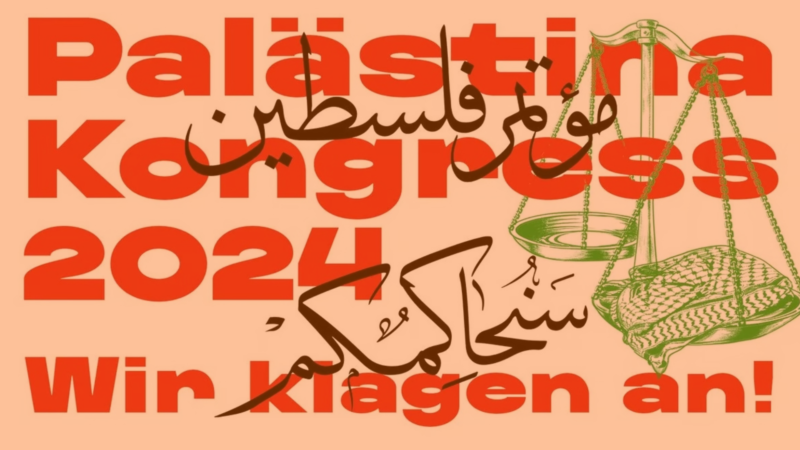On 4 August an explosion presumably set off around 2.700 tonnes of ammonium nitrate in the Port of Beirut, killing at least 180 people and wounding 5.000. It is yet another painful reminder of the critical state of Lebanon.
It comes at a time when many thought the country had hit rock-bottom, after 10 months of mass protests aimed at the corruption, cronyism and incompetence of the political elite, and a devastating financial crisis and currency crash crippled the country, leaving 50% of the population below the poverty line. A painful 4-month COVID-19 lockdown brought the remaining bits of livelihood to a complete grind.
The era of explosions had become a thing of the past in Beirut, and usually targeted politicians. But this explosion was different. It was personal. It destroyed some of Beirut’s few remaining historic neighbourhoods and their diverse social and cultural fabric. It took with it the homes and creative spaces which for many people had become places of escape from the tumultuous reality of daily life in Lebanon.
The dominant political entities were quick to deny any responsibility, even though they were made aware of the dangers of storing large amounts of the highly explosive material so close to the city. It is symptomatic of the deep shortcomings, incompetence and criminal negligence that grew out of a political system that was agreed upon under the pretext of putting an end to the violence of the Lebanese Civil War (1975-1990). It is this system that led to the 3rd largest explosion in recorded history.
To add insult to injury, it was private citizens who took matters into their own hands. In the days following the blast, armed with shovels and helmets, they pulled people from under the debris and cleared streets and homes from rubble. Although the government declared a State of Emergency, not one soldier was mobilised for any relief work in the affected areas. Instead, the army and security forces were deployed in impressive numbers to violently confront protesters, in some cases using live rounds. Protesters had once again come out in large numbers demanding a complete overhaul of the confessional power-sharing system and political elite governing the country.
While the message remained the same as during the first street protests in October 2019, the tone had changed. Frustration had turned into anger, echoing a sense of emergency and despair, and a widely shared distrust of all state institutions and the political elite. The message was clear: “prepare the gallows”.
As the dust settles over Beirut, a thick fog of uncertainty is moving in over the country. At the time of writing, little over two weeks have passed since the explosion. In those two weeks, nearly a dozen of foreign dignitaries have made their acte de presence at the blast site, French and British warships are patrolling the coast, the 9-month old government has resigned, a state of emergency was declared, regional tensions are at an all-time high, and the country is entering its 3rd COVID-19 lockdown.
The cost of stability over transparency.
The cascade of events in Lebanese politics leaves many to wonder what’s next for this small nation. Because it is rarely the Lebanese who decide over their own fate; such decisions are made somewhere between Washington and Tehran, with stops in Paris and Riyadh, and most recently Ankara.
The visit of high-ranking foreign officials pledging relief aid and voicing support for popular demands for change may be heart-warming. But it is them who, for decades, aided Lebanon in return for stability in a region where tensions regularly run high. All too often stability came at the cost of turning a blind eye to the endemic corruption, cronyism and embezzlement of public funds, including EU funds.
A report published in 2019 “unearthed that the EU blithely plows millions of dollars into environmental schemes without the slightest interest in how the money is spent – effectively encouraging big business and public officials to gorge themselves on the easy cash available.”. The report prompted the European Parliament to launch an official probe into embezzlement of EU funding in Lebanon. Ironically, the 38 million Euro the EU may claim back from Lebanon are most likely to come out of the bankrupted state budget rather than the pockets of the officials who cashed the cheques.
On a political level too, the EU has regularly favoured stability over transparency and democracy. In 2018, amid video evidence of politicians paying off voters and ballot boxes being emptied in parking lots, the European Union’s chief electoral observer declared that the elections were “well-conducted, but calls for action to improve women’s access to political power”, without a single reference to the alleged vote rigging.
The port explosion has unleashed an international propaganda machine on the Lebanese population, trying to win over their hearts and minds. For the first time, foreign officials have publicly come out in support of the popular demand for system and regime change. Most notably French President Macron and US under-secretary of State David Hale have underscored the need for reforms in return for structural foreign aid, in a rare public shaming of Lebanese officials.
However, while calling for transparency and reforms, it is the same international community that continues to acknowledge the discredited political elite by negotiating the formation of a new government with them, under the pretext of lifting Lebanon out of its economic and political crises. As Lebanon tilts closer towards chaos the urgency for change is unlikely to outweigh the need for stability so often pursued by the countries with shared interests in the wider region.
The 6-headed monster’s chokehold over Lebanon.
On the streets nobody believes that a new government made up of the same political forces will be able to bring about any change. These six dominant political entities are the same as those who ran the country into its 15-year Civil War. Under the pretext of ending the war, they agreed on sharing the spoils of the country, rather than fighting over them. The deal was sealed with a power-sharing political system that has ruled the country since the end of the war, with the endorsement of the international community. The system has allowed for cronyism and corruption to run its roots deep into state institutions, rewarding those who pledge allegiance to their cronies, while keeping the rest of the population as far as possible from the spoils of the country’s post-war recovery.
State institutions have become the means to protect the system and confine power within the dominant political entities. They can issue the electoral laws that limit the chances of the independent opposition. And they command numerous security services to quell protests, limit press freedom and curb judiciary independence as needed. In particular Nabih Berri, the unchallenged Speaker of Parliament for nearly 3 decades, enjoys exclusive command over one of the most violent police forces. It has been credited with using unwarranted brutality against protesters even far beyond the Parliament’s current security perimeter.
Aided by a media landscape largely owned by, or aligned with, the dominant political entities, the system ensures no other party or popular movement can ever reach the status of a true independent opposition to the dominant political entities. The line between protecting the state and protecting the private interests of the political elite has become very, very thin.
While France, the US, Iran and a handful of other countries are working behind the scenes on a new political deal with the same dominant political elite, it is clear that any new government resulting from these negotiations will be mere window-dressing protecting the existing system and underlying interests. Real change can only come about when the independent opposition parties and popular movements are invited to the negotiating table as part of a solution. But so far, they have only been invited as representatives of the ‘civil society’, further undermining their political legitimacy and the democratic process that should underpin the formation of any new government.
Similarly, calls for early elections are unlikely to lift independent opposition voices into Parliament, with an electoral law written by, and catering to, the dominant political entities. Even if alternative voices manage to secure a majority, their job will meet stark opposition from a system of allegiances that has run its tentacles deep into state institutions and the country’s alliances.
The only hope for change relies on the establishment of an independent transitional government, limited in time and with a clear mandate and legislative powers to govern on an agenda of reforms and immediate relief, and organise new elections based on a new electoral law. The idea is formally being proposed by protest movements and a number of non-sectarian opposition parties, but it seems very unlikely the current political establishment and its international allies are capable of taking such a step. Even if rewarded with immunity for past crimes. Instead, the dominant political elite continues to discredit and silence alternative voices, and the international community plays along.
An eerie sense of calm settles over Beirut.
As the political string-pulling has been taken behind the scenes of the emergency rescue work, an eerie sense of calm has settled over Beirut. The State of Emergency declared in the days following the explosion has quelled the last remaining street protests, once again silencing popular movements in independent opposition parties.
But the explosion that rocked Beirut on 4 August has ignited a sense of urgency among the protest movements to gather around a clear shared political platform. It was the absence of such a platform that provided the political elite with arguments to dismiss protest movements as unrepresentative and unrealistic. However, in the days following the port explosions, a handful of united fronts have come forward with shared statements and the beginnings of clear political demands and propositions.
The challenge now is to gain momentum and win over the hearts and minds of a population that has for too long relied on the protection of their cronies. Cracks have started to emerge as a result of the economic crisis, as it is eating away the benefits distributed through the system of allegiances. But more needs to be done to build a large popular base on an agenda of reform, transparency, accountability and justice. The EU bears a responsibility at this critical juncture, in supporting a system that brings true stability instead of a morally questionable system that only buys precarious stability with foreign money.
It took the 3rd largest explosion in recorded history for Macron and other foreign dignitaries to acknowledge the demands of the popular protest movements and independent opposition. But it turned out to be only a pretext for staging their comeback into Lebanese politics. If Macron and others want to actually lift Lebanon out of its multiple crises, then what more will it take to invite the alternative voices to the negotiating table as part of a political solution towards true stability for Lebanon and its population?
Do you want to be informed of DiEM25's actions? Sign up here






